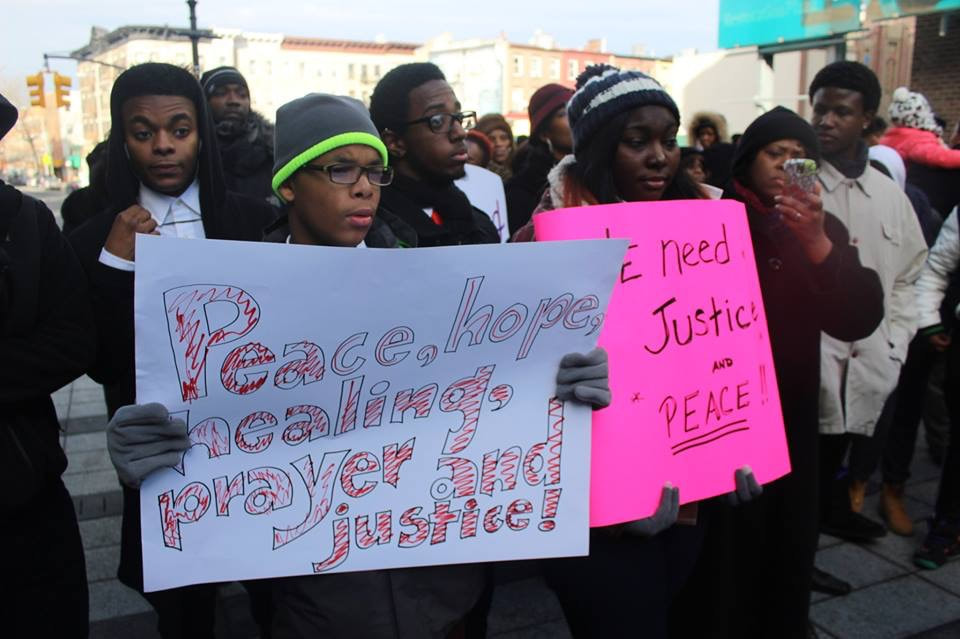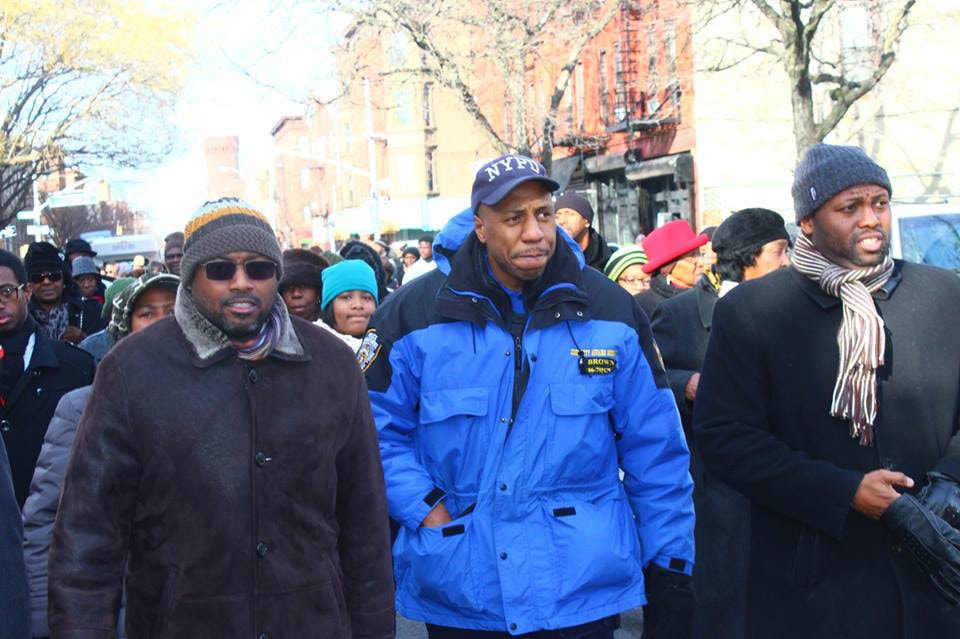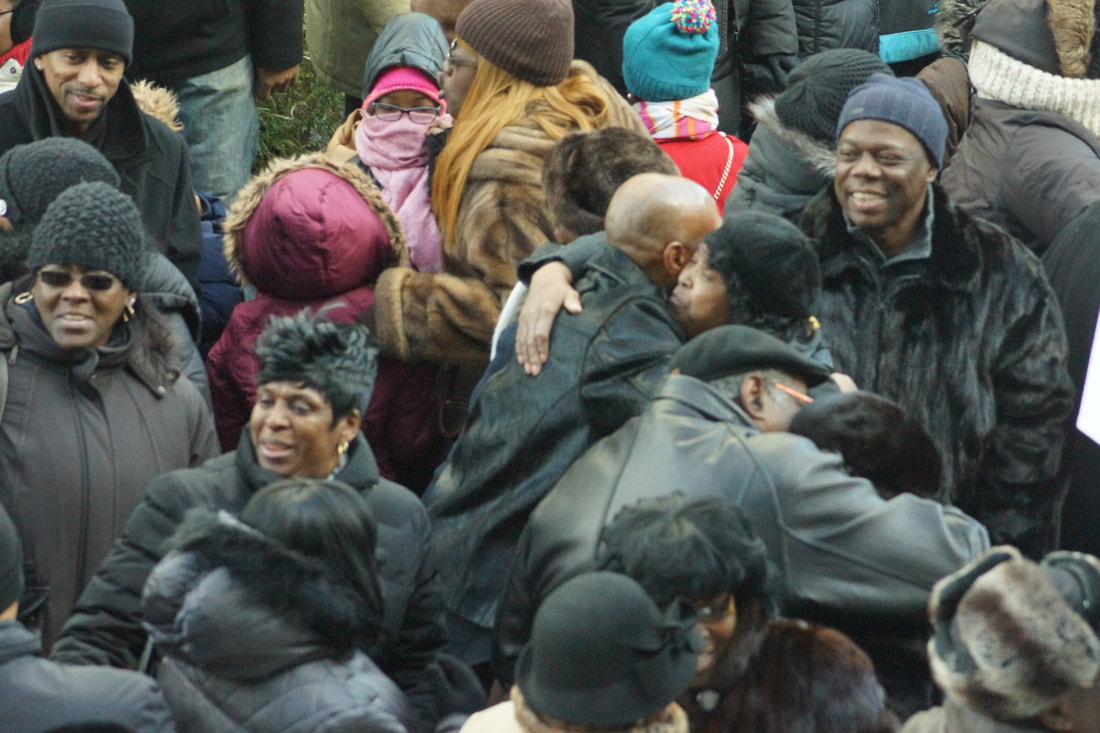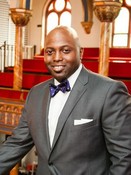|
ICTG welcomes guest blogger, Rev. Shaun Lee, pastor of Mount Lebanon Baptist Church, Brooklyn, NY, sharing about congregational responses to the 2014 Eric Garner killing in New York City. Thousands of people around the globe filled city streets with banners and signs chanting "I can't breathe" in response to a grand jury's decision to not indict New York City police officer Daniel Pantaleo for the killing of Staten Island resident Eric Garner. It was a decision that was highly anticipated given the backlash for a lack of indictment of another policer officer in Ferguson, Missouri for the killing of a young unarmed black male named Michael Brown. New York City especially felt the effects of this decision with protesters walking the streets for several successive evenings in an effort to disrupt traffic and city logistics with an understanding that if the citizens could not get justice, then the city would not get peace. Police presence was heavy, but they were given instructions to allow peaceful protests to go unobstructed. The mayor's empathetic tone for protestors put police officers on edge. During this turmoil another police officer shoots an unarmed black male named Akai Gurley as he was walking down the stairs of his building. Tensions rose throughout the city and just when things were reaching its peak two NYPD officers were shot while sitting in their patrol car by a man who claimed to be exacting revenge for the recent victims of police killings. All of this happens within a span of 17 days and the question is how does the church engage in the healing process when so much community trauma has taken place. My congregation, and several others have chosen to engage in protest, prayer, and partnership as a way of promoting healing and peace within our congregations and community. After the decision of the grand jury to not indict officer Pantaleo several Brooklyn pastors joined together in an effort to create a space for the church to practice peaceful protest for those who could not and would not join in the late night protest. This was a particularly sensitive issue because several members of the congregation are police officers, but in dialogue with them and other officers I felt confident in promoting this protest without the fear of it seeming anti-police. We ended service early and marched with several other congregations within the community to express our discontent and to stand in line with the rich history of the African American church of speaking up to issues of injustice. As we marched onlookers within the community joined our walk, sang beside us, and prayed with us. Since prayer is a tool for transformative power the march ended with a prayer rally. Congregations had been praying on their own, but it was important to pray together as a part of the larger community. It was a great moment for the community and a call to action for the churches within the community to continue experiences like this. We were called to do it again after the shootings of Officers Rafael Ramos and Wenjian Liu, the two officers shot in their patrol car. The shape of it changed in that it was a prayer vigil for peace and justice. We were careful to be sensitive to the police officers during their time of grief while also keeping in mind that justice was still at the forefront of the discussion. Eric Garner's sister, Ellisha Flagg, also joined us in our call for peace and spoke to all those gathered. This rally was planned in partnership with our local councilman and police precinct. Some officers from the community affairs bureau of our local precinct marched with us as we continued to try to bring healing to our community after so many devastating events began to take its toll. We prayed together for the victims of senseless violence, the safety of police officers, the relationship between the mayor and the NYPD along with the relationship between the community and NYPD. It was a sobering reminder that in the grand scheme of things all lives truly do matter and have value in the sight of God. A powerful moment occurred when one of the pastor's read the names of those who were killed in our community to violence in the past year. As each name was read and single white ballon was released into the sky. Certainly the need for continued healing is important. The local congregations have decided to continue partnering together to create experiences that foster healing and prayer. We have also decided to partner with the local police precinct and elected officials to create dialogue and ensure that the community still has a say in policy and how it is policed. Needless to say these partnerships already existed but trauma has a way of reshaping and remodeling our current practices. Through continued dialogue we are better able to deal with traumatic issues when they arise instead of being reactionary. Rally NY Dec 2014 // photos courtesy Rev. Shaun Lee Reverend Shaun J. Lee, a Brooklyn, New York native, serves as the seventh pastor of the Mount Lebanon Baptist Church. His ministry focuses on getting individuals to establish a true relationship with Christ, establishing a meaningful membership in God’s church and a concrete connection with the surrounding and global community. Reverend Lee firmly believes that the Word, Worship, and Work are central to advancing the Kingdom of God. An active member of Omega Psi Phi Fraternity, Inc., Reverend Lee aims to connect with the un-churched through various pillars he’s set in place. Staying in tune with his own personal passions of social justice, he crafted institutions to reflect his ministry including a monthly soup kitchen, back-to-school BBQ that provides 500 children with supplies, a strong social media presence led by volunteers from the congregation and the Judges 19 Ministry which focuses on helping both men and women victimized by domestic abuse. Reverend Lee is married to Valerie, and delights in the nurture of their daughters Sian and Sanai.
0 Comments
|
�
CONGREGATIONAL BLOG
From 2012-2020, this blog space explored expanding understanding and best practices for leadership and congregational care.
This website serves as a historical mark of work the Institute conducted prior to 2022. This website is no longer updated. Archives
July 2020
Categories
All
|





 RSS Feed
RSS Feed
